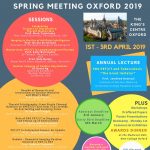
Welcome Ceremony
19.00 – 21.00
Invited lecture by Professor Christos Lionis: Evidence-based innovative therapeutic medicine of Cretan plants: some encouraging specific functions and claims
(Only one lecture is presented in every Olympiad)
Abstract
The Island of Crete was the place where the use of herbal medicine has its roots since the Bronze Age period. Although, the consumption of aromatic plants as component in curing common diseases is still on population’s practices, a new interest was appeared on the basis of studies with a focus on illness behavior as a mutual collaboration between the University of Crete and the University of Leiden, The Netherlands. The antioxidant activity of certain Cretan plants has been documented and it has been shown and reported that herbal extracts are possible to decrease lipid per oxidation in cultured lung cells exposed to iron or ozon. The biological effects and bioactivity of essential oils as well as their antibacterial properties have been previously discussed in the literature. However, it was the first attempt in Europe when a double blind randomized controlled trial examined the effectiveness of an essential-oil extract of three Cretan aromatic plants designed and implemented in rural Crete on patients with upper respiratory tract infection. Descriptive differences were recently reported in favorable direction especially in the virus-positive population, while these results guide at the moment a series of actions for further research and discussion on the potentialities in the therapeutic medicine. A recent joint attempt (Clinic of Social and Family Medicine and Department of Experimental Endocrinology at the School of Medicine, University of Crete) under the support of the National Strategic Reference Framework Program focused on the effectiveness of functional extract of Mentha Spicata encapsulated in yogurt with honey on lipids profile of health patients in rural Crete. The first reported results of a cross-over study which was designed and implemented recently were in a favorite direction and it was in agreement with the animal based study that was carried out in the frame of this project. In conclusion, the two first studies on the Cretan medicinal and aromatic plants support the potentialities of the use of Ethno botanical methodology to move the needle of innovation on viral infections and lipids metabolism.
Innovative presentation by Dr. Sterghios A. Moschos: Ebola Check: Delivering molecular diagnostics at the point of need
Abstract
The 2013-5 global outbreak of Ebolavirus disease brought to sharp focus the need for diagnostic capacity to be equitably available on a global scale: from the most under-developed areas of resource-limited countries in West Africa to high volume international travel hubs in Europe and the USA. Quick detection of the causal agent of disease is pivotal to containment, contact tracing and clinical action to protect healthcare workers, communities and patients. Nucleic acid testing (NAT) by real time reverse transcription quantitative polymerase chain reaction (RT-PCR) has emerged as the preferred method for reliable patient status confirmation. Presently, this is served through advanced clinical molecular laboratory testing in a <8hr manual process that requires 3.5ml venous blood samples. To meet the demand in West Africa, this has necessitated large-scale mobile laboratory and volunteer biomedical scientist deployment: a solution that has proven eventually adequate, albeit temporary against future re-emergence of this and other haemorrhagic fever disease agents prevalent in the region. The EbolaCheck consortium was formed in August 2014 to address the need for delivering NAT at the point of care. We have developed a novel platform technology that can QUantitatively, RAPidly IDentify (QuRapID) known RNA or DNA targets in viruses, bacteria, or eukaryotic cells directly in crude biofluids, including whole blood, in under 40min using a 5 microliter sample. The portable, battery-operated system lacks microfluidics, pumps or other sensitive/high cost parts making it suitable for the environmental and economic challenges of resource-limited countries. The simple, safe, 5-step sample-to-answer process requires minimal training and informs frontline healthcare workers of diagnostic status, whilst reporting remotely epidemiologically relevant results. Data on biosafety level 2 surrogate Ebolavirus templates presented in encapsulated or enveloped viruses indicate performance comparable to clinical laboratory testing and utility beyond filoviruses. Emerging performance data on live Ebolavirus, non-human primate disease model and patient samples, as well as future development plans will be discussed.


